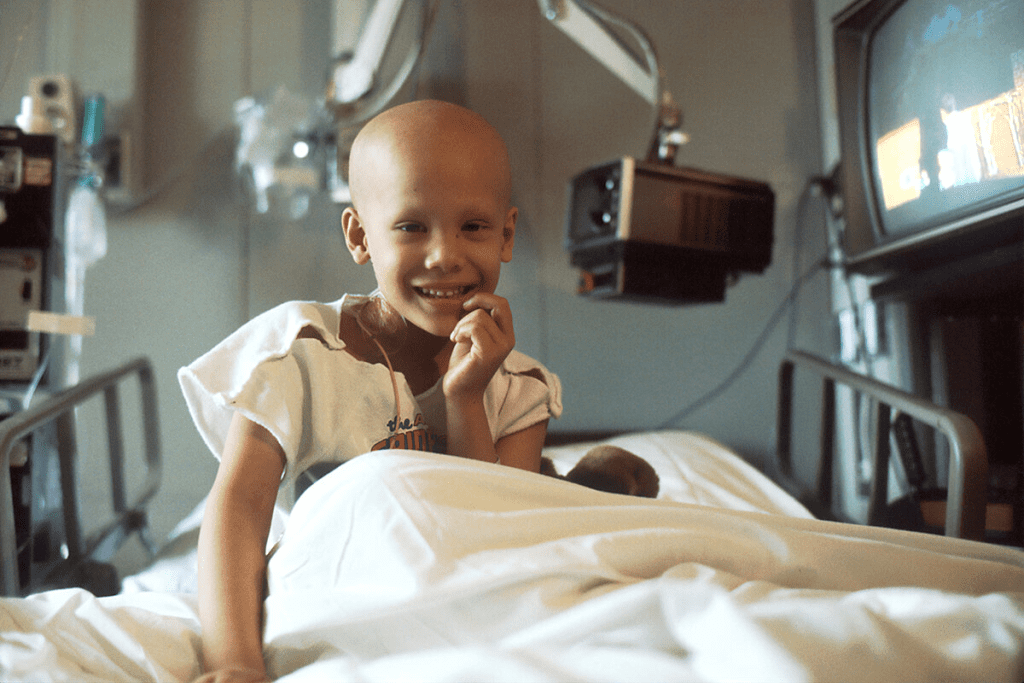Last Updated on November 13, 2025 by
Are childhood cancer cases on the rise? Examine the negative statistics and trends. Crucial facts and powerful data about incidence rates globally.
Recent data show a slight increase in pediatric cancer cases worldwide. But, there’s a positive note: survival rates have greatly improved. The incidence of child cancer has gone up from 14.23 cases per 100,000 children in 1975-1979 to 18.89 in 2010-2019, as the SEER Registry reports. This 0.73% annual increase calls for a closer look at the causes.

Exploring the current state of kids’ cancer is vital. We need to understand which types are increasing the most and why. A report by the New York State Department of Health shows that childhood cancer incidence rates have different trends for different types. Some have seen a drop in death rates thanks to better treatments.
Childhood cancer affects thousands of kids worldwide each year. The numbers are scary and show the big challenges for kids, families, and healthcare. It’s key to understand these stats to help fight this disease.

More than 300,000 children get cancer every year globally. This is a major reason kids die from disease. We need more research and better treatments to fight this disease.
In the U.S., 9,550 kids under 15 will likely get cancer in 2025. This shows we need better medical care and support for families with kids who have cancer.
The chance of getting cancer before 20 is 1 in 285 for American kids. This highlights the need for early detection and awareness in fighting childhood cancer.
Childhood cancer cases have gone up by 0.73% every year on average since 1975. This shows a steady increase in kids with cancer over the decades. We need to keep researching to find causes and prevent it.
The most common childhood cancers are leukemias, brain tumours, lymphomas, and solid tumours like neuroblastoma and Wilms’ tumour. Knowing these stats helps us fight childhood cancer better. By studying these trends, we can help more kids with cancer and improve their chances of survival.
The world of childhood cancer is changing fast. Some types are rising more than others. This shows us that certain cancers are becoming more common.
Lymphomas, a cancer of the immune system, are increasing. Some subtypes are rising even more. This change is affecting research into pediatric cancer.

Other cancers in kids are also a concern. Leukemias, for example, are very common. Brain tumours are another worry, with some types increasing. We must understand these trends to find better treatments.
New detection and diagnostic tools are helping find more cancers. Better imaging and tests mean doctors can spot cancers sooner. This is key to treating children’s cancers more effectively.
Studies link environmental factors to some childhood cancers. We’re looking into how these factors might cause cancer in kids. Knowing this helps us prevent and treat cancer better. We’re dedicated to finding answers to help kids with cancer.
Childhood cancer rates are rising, but there’s a bright side. Treatment success has improved a lot. In the U.S., child cancer deaths have fallen by 70% from 1970 to the present. This shows how far medical care has come.
Researchers are working hard to find out why kids get cancer. They look at genes and the environment. This knowledge will help make treatments better.
Knowing how kids get cancer is key to helping them. As we learn more, we can give kids with cancer a better shot at life. The fight against childhood cancer shows the power of medical research and support.
Childhood cancer, also known as pediatric cancer, is cancer in kids. The most common types are leukemias, brain tumours, lymphomas, and solid tumours like neuroblastoma and Wilms tumour.
Yes, childhood cancers are slightly increasing worldwide. In the U.S., cases rose from 14.23 to 18.89 per 100,000 kids between 1975 and 2019. This is a 0.73% annual increase.
The most common childhood cancers are leukemias, brain tumours, lymphomas, and solid tumours like neuroblastoma and Wilms’ tumour.
The lifetime risk of developing cancer before 20 is about 1 in 285 for American kids.
More than 300,000 kids are diagnosed with cancer every year worldwide.
In the U.S., the death rate for kids with cancer has dropped by 70% since 1970. This shows how far medical care and treatments have come.
Better detection and diagnostic tools might be part of the reason. Environmental risks and exposures could also play a role.
Researchers are working hard to find the causes of childhood cancer. They aim to develop targeted treatments to improve outcomes for kids with cancer.
Thanks to advances in medical care and treatments, there’s been a 70% drop in mortality rates among kids in the U.S. since 1970.
The exact causes of childhood cancer are being researched. It’s believed that genetics and environment play a role.
Kids can get cancer due to genetic and environmental factors. The exact mechanisms are being studied.
Leukemia is the most common cancer in kids. It makes up a big part of childhood cancer cases.
Yes, certain cancers like lymphomas, leukemias, and brain tumours are increasing in kids.
References
Cancer Research UK and Children’s Cancer and Leukaemia Group. (2025). Children and young people’s cancer in numbers. https://www.cclg.org.uk/about-cancer/cancer-children-and-young-people/children-and-young-peoples-cancer-numbers
World Health Organization. (2025). Childhood cancer. https://www.who.int/news-room/fact-sheets/detail/cancer-in-children
New York State Department of Health. (2024). Is childhood cancer increasing? https://www.health.ny.gov/diseases/cancer/childhood/docs/is_childhood_cancer_increasing.pdf
Siegel, R. L., Miller, K. D., & Jemal, A. (2025). Cancer statistics, 2025. CA: A Cancer Journal for Clinicians, 75(1), 7-33. https://acsjournals.onlinelibrary.wiley.com/doi/10.3322/caac.21871
Childhood Cancer Awareness Month 2025. (2025). World Health Organization. https://www.emro.who.int/media/news/childhood-cancer-awareness-month-2025.html
Subscribe to our e-newsletter to stay informed about the latest innovations in the world of health and exclusive offers!